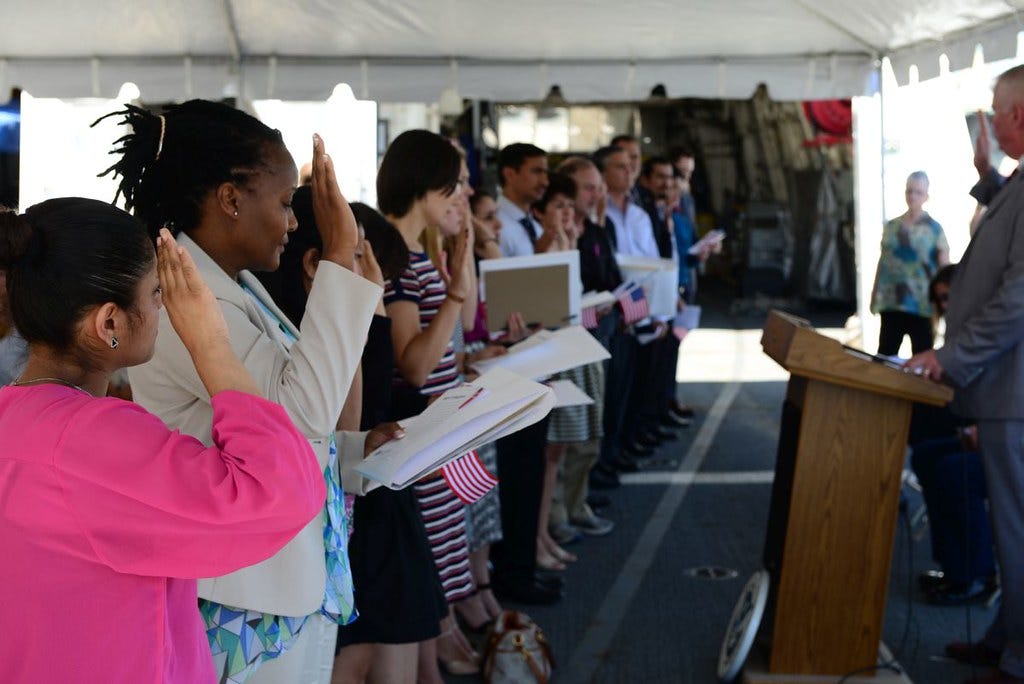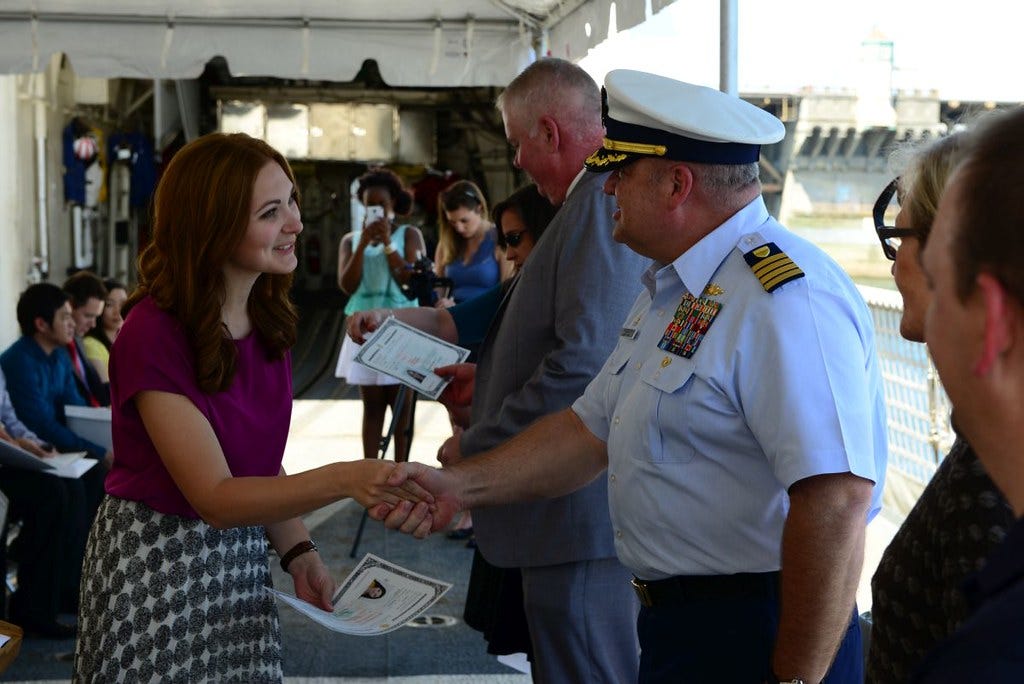A celebration of citizenship
Cities like Independence are demonstrating a renewed commitment to what our founders called “civic virtue.” It’s a model that can serve us and our nation well.
Tim served as Chief of Staff for Gov. Kulongoski. A former union leader, he lives near Independence and oversees a specialty apple orchard.

When John McArdle, the long serving mayor of Independence, talks about citizenship, he does so haltingly, deliberately, searching for just the right words. I’ve heard him tell his story several times now over the years, but never with more feeling than when he relates his life experience to that of his city’s newest citizens.
In 2019, McArdle hosted a gathering at City Hall to honor residents of Independence and their families who had just been sworn in as U. S. citizens. You can view a video of the celebration here.
For McArdle the event was personal. He himself had become a citizen after being adopted from an orphanage in Germany. “They were thrilled,” he said, referring to the new citizens he welcomed that day. “They were American citizens! It was one of the most rewarding things I have ever done.”
Those new citizens had taken an oath to support and defend the Constitution and laws of the United States. That’s not something that we who are citizens by birth have ever done, unless we’ve served as members of the military, peace officers or elected officials. For most of us, there is no moment of choice and no rite of passage to citizenship today – just paperwork of the kind you need in order to do stuff, like drive a car or travel abroad.
Back in the 1960s, when I graduated from college, I, like millions of other young men of draft age, faced the choice and responsibilities of citizenship with an immediacy and seriousness that was life changing. For me, that moment led to a long conversation with my draft board and their approval of my non-combatant status.
Others chose to serve as combatants, as the author Karl Marlantes, who grew up in Seaside, recounts in a tribute to Viet Nam veterans he delivered on Memorial Day this year. He is candid, conflicted, but still proud of the choice he made. You can watch Marlantes’ remarks here.
For McArdle and Marlantes, there is a tangible quality to citizenship that is both individual and communal. McArdle connects the welcoming of new citizens to the expectation that they will become contributing members of the community. Marlantes speaks of the passing of batons from one generation of citizens to the next.
It is an irony of our times that an increasing disconnect from the concept of shared citizenship has been accompanied by an escalating conflict over access to its benefits – while ignoring its responsibilities. Those who accepted the responsibility to serve in the military or in programs like the Peace Corps report a broadening of their connection to the diversity of those they served with.
For these reasons, we’re seeing renewed interest in some form of national service from my generation and from younger Americans, like the founder of this blog, who are searching for ways to reunite us. This need not take the form of a draft for military service. The oath sworn by naturalized citizens refers to bearing arms, performing non-combatant service in the Armed Forces and performing “work of national importance under civil direction.” But it’s notable that current law allows allegiants to choose only the last of those three forms of service.
Military service or “work of national importance” is not something that citizens by birth now commit to, nor do most of us expect service of any kind to be a requirement of our citizenship. I’ve seen a similar disconnect when it comes to taxes. A former union colleague of mine once told a legislative committee that he opposed any increase in taxes that would be paid by his members. Not even ten bucks a year, a dollar or even a dime to support our shared purposes? Likewise, if now asked for national service, would we say no to a year, a month or even a week?

On the local level, McArdle takes that idea of shared purpose and engagement as a personal responsibility in his job as mayor. He doesn’t just talk the talk, he brings it. He brought the city’s public hearings to the largely Latino congregants at St. Patrick’s Church and has scheduled City Council meetings once a year at the local high school. In return, he expects greater citizen participation, which Independence gets in impressive numbers.
Cities like Independence are demonstrating a renewed commitment to what our founders called “civic virtue.” It’s a model that can serve us and our nation well.



